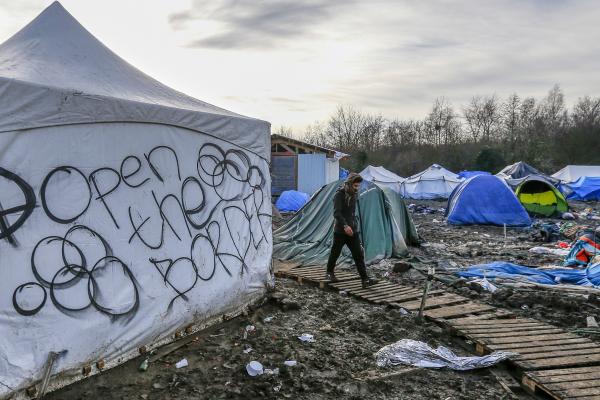PRAGUE – The European Union should be ready with alternative plans to reinforce its borders until Turkey and Greece do more to reduce the number of refugees streaming into the bloc, the Czech and Slovak prime ministers said on Tuesday.
Czech Prime Minister Bohuslav Sobotka has called a meeting of the Visegrad group of central European countries for Feb. 15, three days before an EU summit that will tackle the migration crisis.
The Czech Republic, Slovakia, Hungary and Poland have together taken a tough stance on migration and been at odds with western EU neighbours in dealing with an influx of migrants that topped 1 million last year.
The 28-nation EU on Monday inched closer to accepting that its Schengen zone of passport-free travel may be suspended if it cannot curb the number of asylum seekers mainly from the Middle East and Africa.
More than 40,000 people have arrived in EU-member Greece by sea from Turkey in 2016 despite a deal with Ankara two months ago to hold back an exodus of Syrian refugees. Sobotka said it was even a question whether Greece had “given up” on its duties.
“Greece has not been able to provide (border) protection,” he said in a televised news conference with Slovak counterpart Robert Fico in Bratislava.
“We have to put pressure on Turkey to fulfil its agreements with the EU. We have to insist that Greece, as far as it is in Schengen, meets its requirements.”
Sobotka and Fico said it was time to start agreeing a back-up border control system to have ready in case migration could not be controlled in Turkey or Greece.
“There must be a back-up plan, regardless of whether Greece stays in Schengen. We must find an effective border protection,” Fico said.
Most migrants head to richer EU countries such as Germany, so the number entering central European states has been low.
However, countries in the region have protested against an EU quota system intended to redistribute asylum seekers among member states. They have also stressed the need for stricter EU border protection and speeding up the creation of a joint border patrol. The EU is expected to agree details of the new guard only in June.

